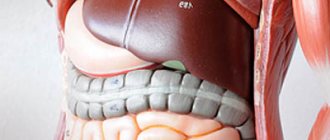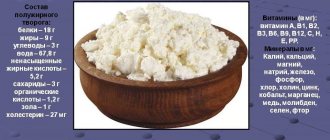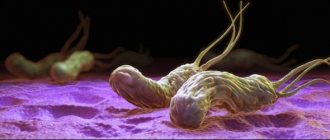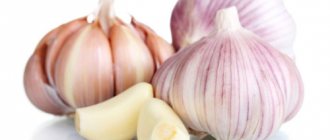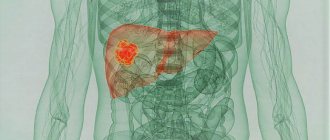Causes of gastritis
A feature of gastritis is the variety of its forms: acute gastritis with an abrupt onset and severe symptoms, as well as many forms of chronic gastritis (with low or high acidity, with mucosal atrophy, erosions, or autoimmune, infectious, reflux).
The chronic form of gastritis usually occurs as a result of prolonged exposure to irritating factors on the walls of the stomach or untreated acute gastritis.
Such factors include:
- eating irritating foods (spicy, salty, very hot foods, too dry foods, sour foods),
- drinking alcohol and smoking,
- consumption of carbonated drinks, foods with preservatives and dyes,
- taking certain medications (aspirin, diclofenac),
- constant stress,
- sedentary lifestyle,
- weakening of the immune system,
- hormonal changes,
- exposure to allergens,
- exposure to microbes Helicobacter pylori,
The most common causes of acute gastritis are:
- poisoning or food infections,
- exposure to chemicals, alcohol, alkalis, very spicy foods.
Acute gastritis requires treatment most often in a hospital.
Treatment of heartburn
Author: Kulikova Yulia Rinatovna
What is heartburn?
More than half of Russians experience heartburn every day.
Heartburn is a recurring sensation of burning or discomfort in the chest or pit of the stomach, often occurring after eating. Isolated cases of heartburn occur in many people due to eating spicy, fried and fatty foods, overeating, obesity and pregnancy, and taking medications. Such cases do not have a damaging effect on the esophagus and do not require treatment.
Isolated cases of heartburn occur in many people due to eating spicy, fried and fatty foods, overeating, obesity and pregnancy, and taking medications. Such cases do not have a damaging effect on the esophagus and do not require treatment.
When should you see a doctor?
If you are bothered by attacks of heartburn at least once a week, get worse when bending over and lying down, and do not go away even with the strictest diet or taking antacid medications, we suggest contacting our center for a consultation with a gastroenterologist in order to solve this problem.
Why treat heartburn?
And if heartburn has been bothering you for more than 5 years, then it can lead to other health-threatening diseases, such as Barrett’s esophagus (a precancerous condition of the esophageal mucosa), so it is better not to hesitate and consult a doctor in time.
Causes of heartburn
The main cause of heartburn is a weakening of the muscle ring ( lower esophageal sphincter ) located between the esophagus and stomach. It protects against the reflux of food and the entry of aggressive gastric contents into the esophagus. If the muscles of the lower esophageal sphincter weaken and do not perform their functions fully (cardia insufficiency), then gastric juice entering the esophagus damages it, which is felt as a burning pain . Gastric juices can become mixed with bile and enzymes, resulting in a bitter taste in the mouth.
Heartburn can also be caused by:
- consumption of foods that irritate the esophagus - sour fruit juices, citrus juices, tomatoes, strong coffee and tea, dark chocolate, fresh mint, onions, peppers, garlic, alcohol, carbonated drinks.
- increased gas formation, flatulence, constipation.
- taking certain medications, for example, drugs to lower blood pressure, heart medications, drugs for the treatment of bronchial asthma containing theophylline.
Heartburn may be a symptom:
- gastroesophageal reflux disease (GERD)
- peptic ulcer of the stomach and duodenum
- hiatal hernia (hiatal hernia)
- gallbladder diseases
- intestinal diseases.
What is needed to treat heartburn?
Heartburn is a mask for many diseases of the gastrointestinal tract, so you can get rid of it only by finding out the cause and undergoing the necessary treatment. Finding the cause of heartburn is easier and faster with a doctor who has experience managing patients with heartburn syndrome. In addition to consulting a gastroenterologist, you may need:
- videogastroscopy (digital VGDS) - for diagnosing the condition of the lower esophageal sphincter and the mucous membrane of the esophagus, stomach and duodenum;
- test for Helicobacter pylori infection;
- various types of laboratory tests;
- consultation with a surgeon if surgical treatment is required.
Sometimes, in order to find out the cause of heartburn, which is difficult to treat, in patients with gastrointestinal diseases, it is necessary to examine not only the esophagus and stomach, but also the intestines and gallbladder.
Author: gastroenterologist Yulia Rinatovna Kulikova
Symptoms of gastritis
Gastritis can be asymptomatic for a long time, but exacerbations occur when exposed to provoking factors. Typically, manifestations of gastritis include:
- feeling of heaviness in the stomach after eating a large meal,
- pain in the stomach on an empty stomach or after eating,
- presence of nausea or vomiting, belching,
- a sharp decrease in appetite and weight loss.
The signs may appear all together or only some of them.
The manifestations of gastritis largely depend on its form; common to all forms of gastritis can be heaviness in the stomach, a feeling of fullness, nausea and weakness, the tongue is covered with a gray or white coating, there may be a dry mouth or drooling.
General symptoms of gastritis are general weakness with dizziness, headaches, severe sweating and an increase in temperature to 37.0-37.3 ° C, decreased blood pressure, increased heart rate, dry hair or nails, pallor and irritability.
With increased or normal acidity, the symptoms include stomach pain, heartburn or sour belching, a feeling of severe heaviness after eating and constipation. With severe acidity, vomiting may occur at the height of pain or heartburn. The pain occurs at night or on an empty stomach.
Low acidity is characterized by decreased appetite and an unpleasant taste in the mouth, morning sickness, belching of air, transfusion or a feeling of rumbling in the stomach, diarrhea alternating with constipation. As such gastritis progresses for a long time, anemia, weight loss, and general weakness may occur. Abdominal pain is usually dull and aching.
Gastritis occurs with periods of exacerbation, when all the symptoms are especially acute and severe, and periods of remission, when there are practically no symptoms or they are very mild.
Complications
The consequences of delayed treatment are complications that lead to irreversible deformations, which are more difficult to deal with than with the initial stages of development.
A person neglects to visit a gastroenterologist, but the symptoms subside, creating the impression that everything went away on its own. But in reality it is different, and this means the development of erosion processes on the walls. This quickly leads to bleeding, leading to death. Ulcers also form on the mucous membranes. This is a common cause of destruction of blood vessels. A sign of intestinal bleeding will be dark liquid stools, speckles of blood in the feces, and if the upper part of the intestinal tract is damaged, bloody, foamy vomit, the color of coffee grounds, will occur. Blood loss leads to iron deficiency anemia and vitamin B12 deficiency.
Gastritis can provoke inflammation of the pancreas, and a dangerous, painful process develops - pancreatitis. The gallbladder can also become inflamed - cholecystitis, the duodenum - duodenitis;
With a constant lack of appetite, anorexia develops, rapid weight loss, and exhaustion.
Also, without timely seeking medical help, there is a risk of developing oncological pathologies, especially with a burdened hereditary predisposition.
Diagnosis and treatment of gastritis at the TN Clinic.
To establish a diagnosis of gastritis, in addition to the typical symptoms, it is necessary to perform a gastroscopy, which can be done for you at the TN-Clinic. In order to accurately determine the type of gastritis, a highly qualified gastroenterologist, based on the described complaints, if necessary, will prescribe a series of tests to identify the bacterium Helicobacter pylori (the pathogen that provokes the development of chronic gastritis), determination of the acidity of gastric juice, a biopsy, etc. All studies are carried out during the gastroscopy procedure .
Based on the results of the examination, the gastroenterologist will develop an individual treatment plan, which includes drug therapy and a special diet. Drug treatment is prescribed taking into account all factors: acidity, the presence of Helicobacter, severity of pain, etc. A special diet is developed by a professional nutritionist. When drawing up a nutrition program, a nutritionist takes into account data from tests, examinations, individual characteristics of the body, the course of the disease, possible concomitant pathologies and other factors. In the future, following a properly formulated diet will help avoid relapses of gastritis, normalize digestion and eliminate painful symptoms.
Contact us and your problem will not remain unattended.
Your questions are answered
Ustinov Alexander Vasilievich
Gastroenterologist, hepatologist. Doctor of the highest category.
How is the diagnosis of gastritis confirmed or excluded?
Answer
During gastroscopy, material (biopsy) is taken for histological examination. Based on the results of this study, the diagnosis of “Gastritis” is confirmed or not. This is the only way to confirm the diagnosis.
What is the treatment for gastritis?
Answer
It all depends on the form of gastritis. Treatment can be medicinal or non-medicinal. For some, a diet, physiotherapeutic treatment or special exercises will be enough. Some will need to take medication. The doctor will be able to prescribe treatment after conducting a study (gastroscopy).
From whom and how is helicobacter pylori infection transmitted?
Answer
Helicobacter pylori is transmitted through the fecal-oral route, from a sick person to a healthy person, mainly to children. For adults, no. Helicobacter pylori becomes infected in childhood. Once it is treated, re-infection does not occur.
Is it possible to completely cure chronic gastritis, or will you now have to go on a diet for the rest of your life?
Answer
It all depends on the form of gastritis. Atrophic gastritis is difficult to cure, but it is also possible. Some forms of gastritis do not require diets. Much more important is regularity of nutrition. Frequent meals, in small portions 3 to 5 times a day. more useful.
What complications can occur with gastritis?
Answer
Acute gastritis can cause bleeding. The chronic form of gastritis can develop into cancer.
What examination needs to be done? Are there any tests that need to be taken?
Answer
If it is necessary to confirm the diagnosis of gastritis, then gastroscopy with biopsy.
Is it possible to inherit gastritis?
Answer
Practically no, impossible. There are very rare forms of gastritis that can be inherited, but such cases are isolated and very, very rare.
What is atrophic gastritis?
Answer
Atrophic gastritis is the most unfavorable form of gastritis. It most often degenerates into cancer.
Can gastritis turn into an ulcer?
Answer
Gastritis itself cannot degenerate into an ulcer. These are different diseases. But against the background of gastritis, it is much easier for an ulcer to arise.
Diet
Foods and diet affect the health of the digestive system. In acute cases, eating is not recommended for the first 2-3 days. Only drink plenty of warm mineral water without gas. Then they switch to kefir, liquid, semi-liquid porridges, vegetable soups, jelly, and low-fat dairy products. Avoid spices and carbonated drinks. Over time, they switch to a diet with less strictness.
During the period of remission, table number 2 is prescribed. This is a rational therapeutic diet for patients with intestinal pathologies. The main goal is to protect the mucous membrane, enrich the diet with protein, iron and vitamins. Limitations of products containing coarse fiber - whole grain cereals, bran, flour, flour products, nuts and legumes. The consumption of pure cow's milk is prohibited. Exclusion of spicy, salty, smoked, fried foods.
Before eating, food is prepared by boiling, steaming, stewing and baking. The products are crushed to reduce injuries to the digestive tract. Small meals up to 5 times and at least 1.5 liters of water per day.
Prevention and prognosis
Once treatment is started, especially in young people, it is not difficult and quick. The prognosis is favorable in the absence of severe complications, such as transition to oncology.
Prevention before the onset of a disease includes a healthy lifestyle - giving up bad habits, smoking, and giving up alcohol. Rational, regular, nutritious nutrition containing microelements and vitamins necessary for health, reducing to a minimum the need to use medications.
Secondary prevention, that is, after recovery, includes complete abstinence from alcohol-containing drinks, adherence to the prescribed diet, and examination by a gastroenterologist at least once every two years.
Thus, alcoholic gastritis is an easily avoidable disease. There are no moments in life's journey where it is under no circumstances possible to replace alcohol with non-alcoholic drinks. But even if this rule is violated, going to the hospital on time and ensuring a further healthy life after recovery is not difficult.
Author of the article: Yakovlev Evgeniy Anatolyevich
Narcologist, Candidate of Medical Sciences.



